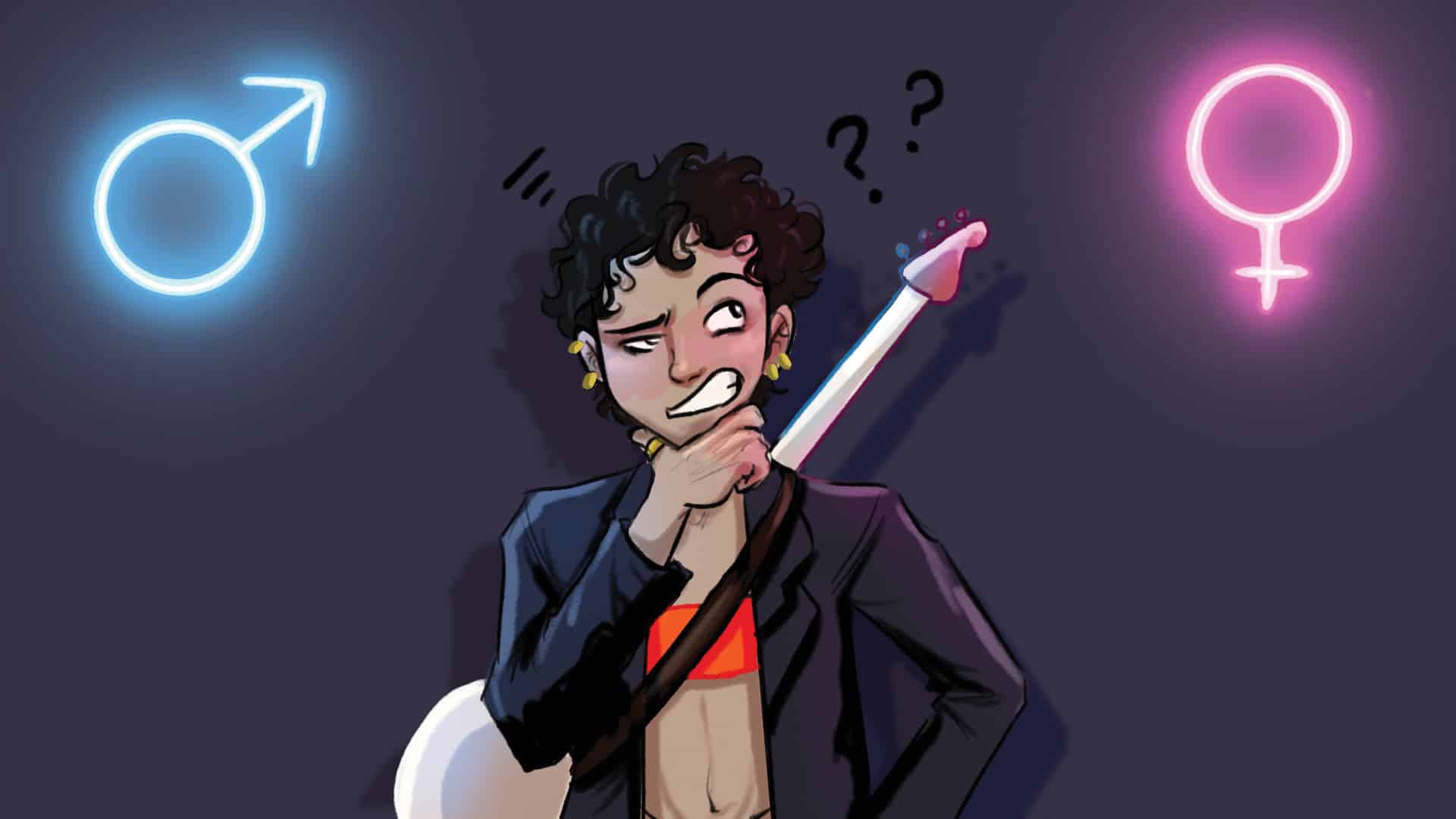I have loved music for as long as I can remember. When I was a baby, my dad would sing The Beatles’ songs to me. I got my first keyboard at five years old and started playing alto saxophone at 12.
Eventually, listening to and playing music wasn’t enough: I wanted to become an artist and create it from scratch. Now, I am a proud nonbinary artist releasing music under the name “Maya Compositions,” writing orchestral music scores, piano sheet music, and electronic pop songs.
Alas, releasing music isn’t all sunshine and rainbows. My music career is virtually nonexistent — currently, as this article is being published, I have a whopping 28 monthly listeners on Spotify, for whom I am very grateful. Shameless self-promotion was never my wheelhouse, but I post Instagram stories and reels about my music, hoping to encourage other people to stream my songs.
I do not produce music for money — my bank account is certainly not going ‘up’ because of my music career. I simply want to share my art with the world and showcase my talents. However, to have any chance of people listening to my songs, I need to put myself through the same processes as artists whose music is their livelihood: marketing myself and promoting my songs on social media.
The consequence of this is that if people don’t listen to your music — regardless of how well you promote it — you begin to feel bitter. Even if, like me, you claim not to care about the number of likes and streams, it gets to you. You enter this toxic headspace in which you compare yourself to artist peers who — let’s face it — always at least appear to have achieved more success. These comparisons inevitably leave you wondering whether you actually have talent. If your music has fewer streams, is it still good? Does a lack of success speak to a lack of musical skill outside of your awareness?
And down the spiral you go, conflating talent with success — the cardinal rule of what not to do as a creative.
Being nonbinary in a field that focuses on binary gender divisions further complicates comparisons. Many of music’s biggest award shows — other than the Grammy Awards — segregate categories by gender, leaving no space for those outside the binary. Many choirs still divide parts by gender: sopranos and altos are women, and tenors and basses are men. I am not in these two arenas specifically, but growing up in a culture that promoted these deceptively clear-cut divisions has certainly messed with my head.
Singing is especially tricky, because while I want to use music to express my identity, there is no way to ‘sound’ nonbinary — at least not in the way I want to. It’s relatively simple to manipulate my speaking voice to sound less feminine, but that is much harder to do while singing, which makes it difficult for me not to feel dysphoric when I hear myself sing.
You may be wanting to ask me, “Then why release music at all? Music has left you bitter and insecure.”
First of all, I appreciate the hypothetical concern for my well-being. Second, the answer comes in the form of three lessons I have learned as an artist.
The first of these lessons: knowing that your song may be on the internet forever can scare you — in a good way — into perfecting things you’d usually gloss over. Releasing music on major streaming platforms has pushed me to learn how to mix and master songs, add effects, and work with complicated digital audio workstations. Even if only a few people listen to my songs, I know there are audible improvements between my first and latest song.
The second lesson: comparing levels of success is counterproductive. Success is not synonymous with talent because so much chance goes into success. One person can change your music career. One retweet or share can start a chain reaction that draws more and more people to your content. Yes, music quality does contribute to success — but success also involves some luck.
And although it’s fine if you don’t want to compare yourselves to others at all, there is value in listening to your peers’ songs and discovering new sounds and techniques. I’ve written entire songs inspired by the ambiance or lyrical content of someone else’s.
The final lesson, especially for my fellow LGBTQ+ artists: don’t let labels impact how you view yourself. We assign ourselves expectations based on our identities, perhaps more than we should. There is no need to live up to a label that, really, has no strict definition. There is no one ‘right’ way to sound — period.
If you want to express your identity through your music, there are many different avenues to do so. If my voice sounds too feminine, I may use vocal effects to change its timbre as a stylistic choice. Moreover, I can express my identity through other aspects like lyrics and album covers.
Ultimately, I continue to release music — despite the bitterness and dysphoria I sometimes feel about it — because it has contributed much more positivity than insecurity to my life.
To my fellow artists juggling schoolwork, a job, and a passion for music: maybe we won’t ever crack the Billboard Hot 100, but as long as we love what we do and don’t bog ourselves down with negative comparisons, anything is possible. If someone with only 28 monthly Spotify listeners can be this optimistic, so can you.


